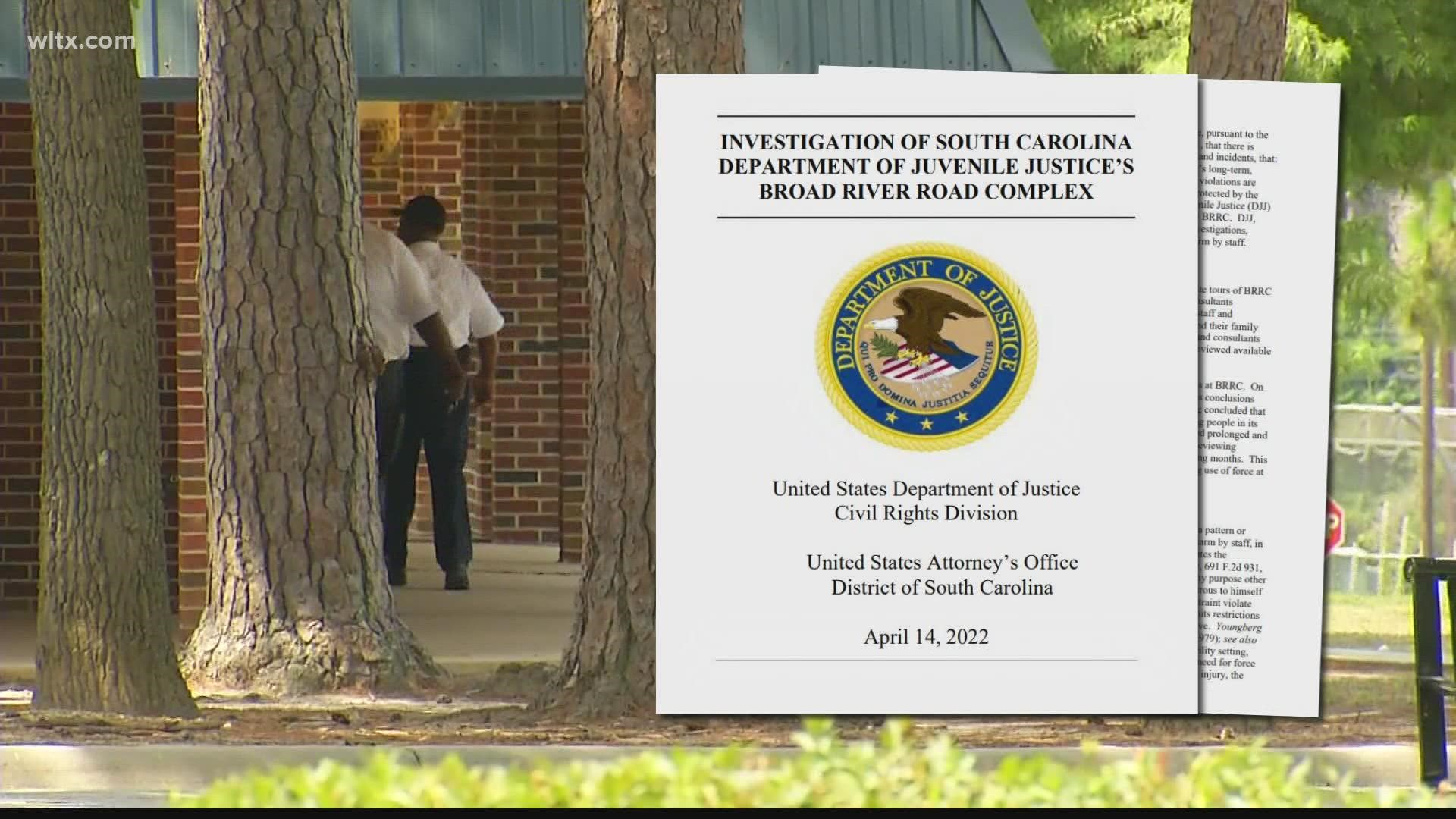COLUMBIA, S.C. — Several civil rights groups are suing South Carolina over conditions at its juvenile lockups, alleging that children in state custody are subject to violence and isolation while deprived of educational or rehabilitative programs.
The lawsuit filed in federal court Tuesday comes less than two weeks after officials at the state Department of Juvenile Justice agreed to make changes at its main detention center following a federal investigation that found the state was violating the civil rights of youths housed there.
But that agreement doesn't go far enough because it only addresses issues at the Broad River Road Complex in Columbia, the groups said in their complaint, arguing that the Department of Juvenile Justice also needs to fix conditions at four other facilities across the state.
The American Civil Liberties Union and two law firms filed the lawsuit on behalf of the state's NAACP conference, the criminal justice reform organization Justice 360, and Disability Rights South Carolina.
Echoing findings by federal and state investigators in recent years, the complaint describes routine youth-on-youth violence and violence by staff against the youths that agency employees often ignore or enable. Children who commit minor infractions are also placed in isolation, spending up to 23 hours a day in small cells without natural light.
One officer told a 16-year-old who was assaulted by three other children earlier this year to stay away from facility cameras so he would not be seen bleeding, the complaint alleges. Another child was beaten and choked by five members of the agency's police force while handcuffed and shackled over accusations of robbing staff; he was then hogtied and blocked from filing a grievance, according to the complaint.
A lack of staff means children are often detained past the legal limit of 45 days at evaluation centers across the state, the groups said. At the main pre-trial detention center in Columbia, some youths sleep in plastic makeshift “boat beds” because of a lack of bed space. Youths live in unsanitary conditions, with human waste on the floors and cockroaches in the food, the complaint states.
“South Carolina exposes the children in its juvenile justice system — most of whom are Black — to barbaric conditions,” said Brenda Murphy, president of the state NAACP, in a statement. “Our most vulnerable children must receive support, not punishment.”
A spokesperson for the Department of Juvenile Justice did not immediately respond to a request for comment Wednesday morning.
The complaint traces the violent and unsafe conditions at the state's juvenile facilities back to the 1960s, when Pulitzer Prize-winning reporter Howard James wrote about boys being beat up "with fists, rubber hoses, ropes, broken hoe handles and broom handles, and other weapons.”
A federal judge sided with civil rights groups who sued the juvenile justice agency in 1995, finding that facilities were overcrowded and understaffed, as children lived in unsanitary conditions without adequate medical care or education. The agency remained under a federal consent decree in that case until 2003.
In more recent years, legislators have been critical of the agency since a string of gang-related riots at the main prison in 2015 and 2016 that resulted in fires and property damage. A subsequent 2017 state audit led to the resignation of then-director Sylvia Murray.
Freddie Pough, Murray's successor, stepped down last year after another scathing state audit, a no-confidence vote by state senators and a walkout by correctional officers at the Broad River Road Complex.
Eden Hendrick, who took over last fall after Pough’s resignation, has outlined to lawmakers her planned overhaul of the agency. The interim leader has restructured the agency’s leadership, modernized facilities, instituted sign-on and retention bonuses at the agency to try to fill correctional officer vacancies and asked lawmakers for funding to move mentally ill youth out of detention facilities they are illegally housed at, she said earlier this year.

